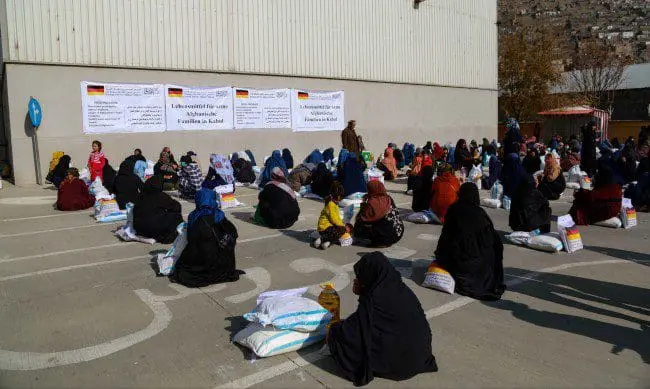On Friday, the Taliban issued a decree on behalf of its top leader instructing Afghan ministries to “take serious action” on women’s rights, but did not mention girls’ access to schools.
The move comes after Islamists seized power in mid-August and sought to restore Afghanistan’s access to billions of dollars in assets and aid that were halted when the previous Western-backed regime collapsed in the final stages of withdrawing. the US military.
“The Islamic State leadership is ordering all relevant organizations … to take serious action to enforce women’s rights,” the decree said, citing top-ranking leader Hibatullah Ahundzada, who avoided public appearances.
The decree focuses on marriage and widows’ rights, stating that “no one may force women to marry by coercion or pressure” and that a widow is entitled to an unspecified fixed share of her husband’s inheritance.
The document instructs the Ministry of Culture and Information to publish materials on women’s rights, “to prevent … continuing repression”.
Respect for women’s rights has been repeatedly cited by key global donors as a condition for aid recovery.
The decree makes no mention of girls’ secondary education, which has been suspended for millions, or the employment of women who are barred from returning to the public sector.
Women’s rights were severely restricted during the previous Taliban rule, which lasted from 1996 to the end of 2001.
Women were forced to wear a burqa that covered them completely, they could only leave their homes with a male companion, and they were forbidden to work or study.
Since becoming supreme leader in 2016 after his predecessor was killed in a US drone strike, Ahundzada has maintained a very low public profile.
On October 30, the Taliban released a 10-minute audio recording of his alleged speech at a madrassa in the southern city of Kandahar that day.
However, some analysts believe he may have been killed one or more years ago.







